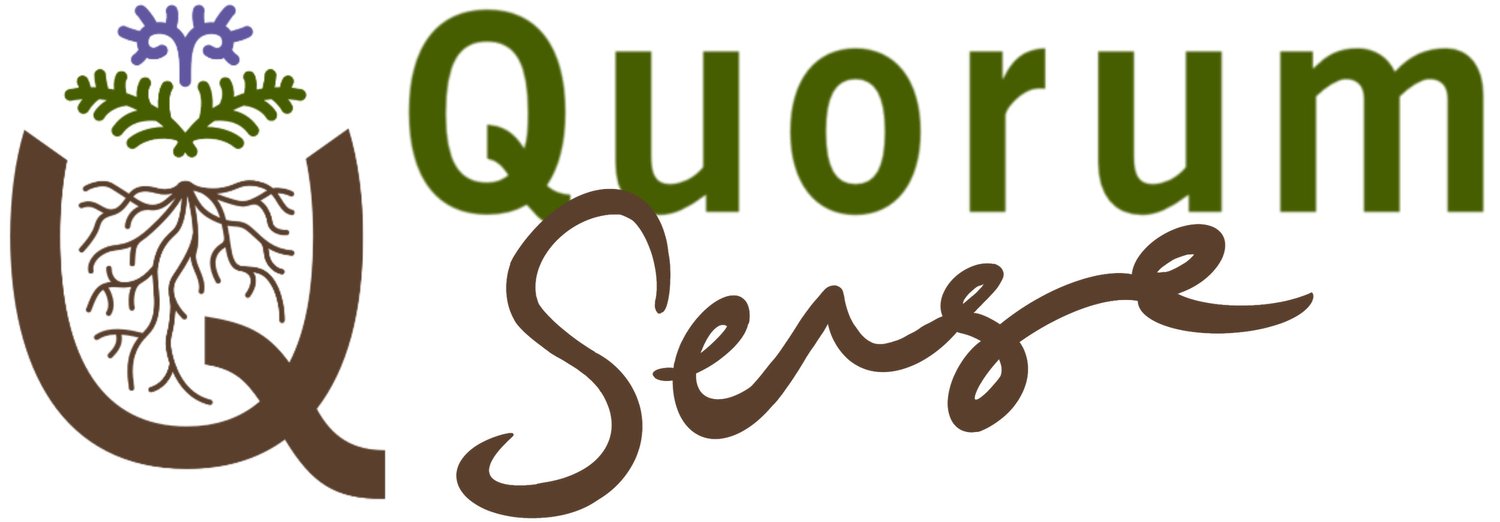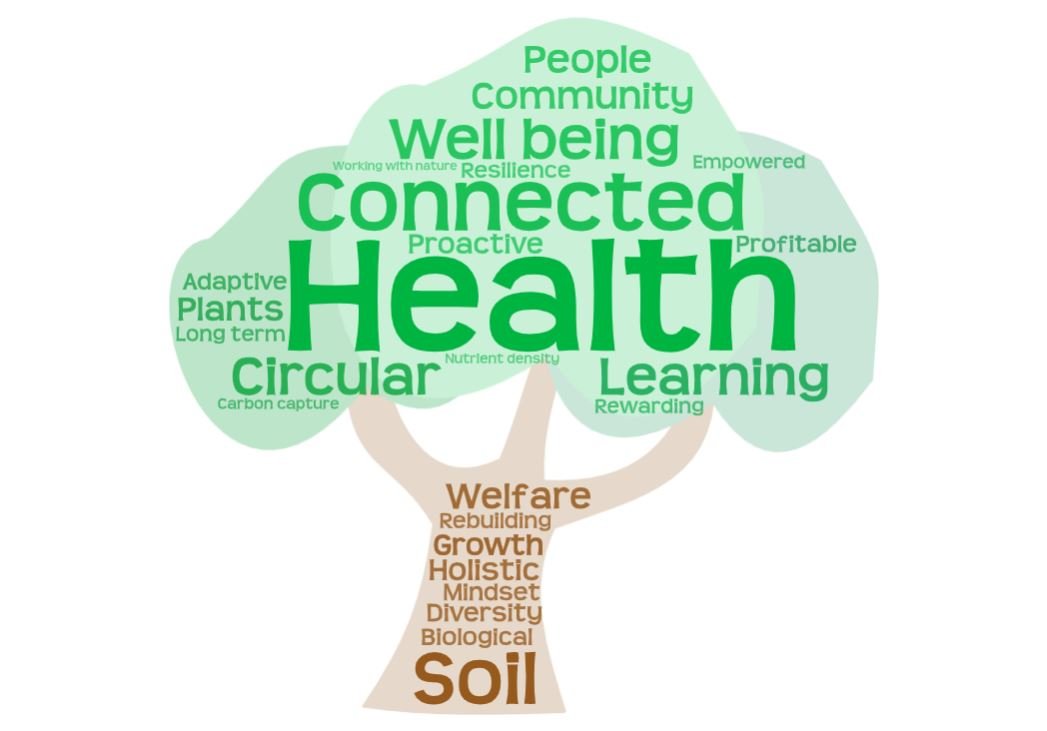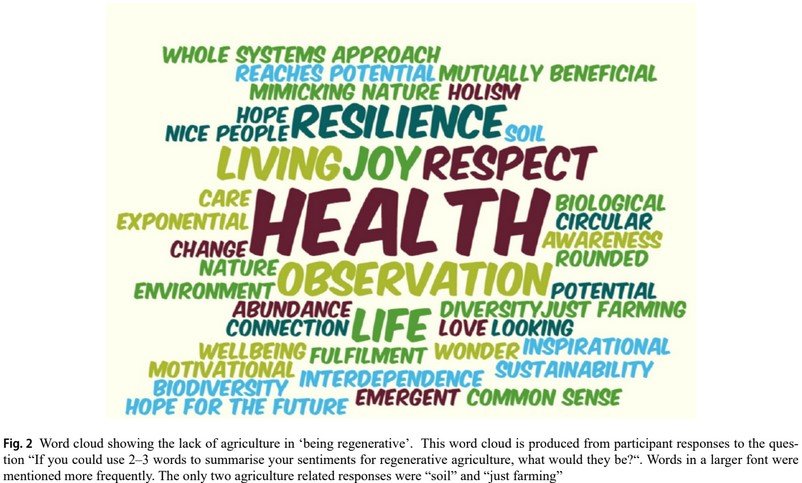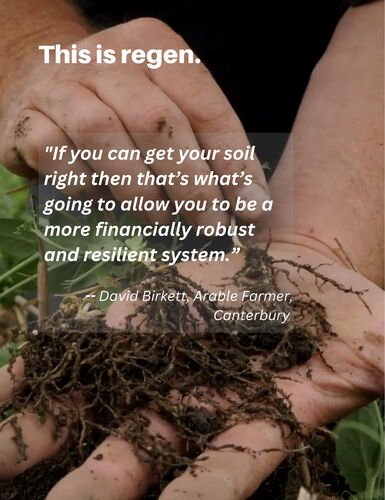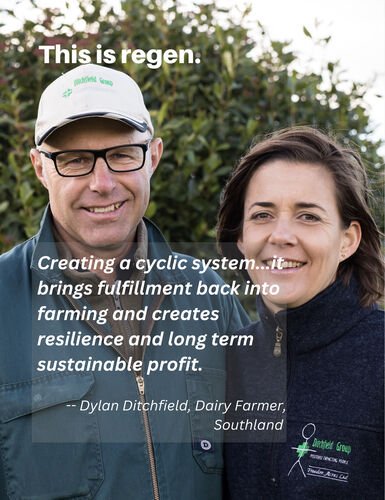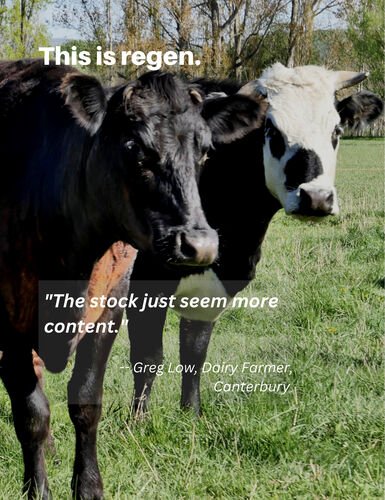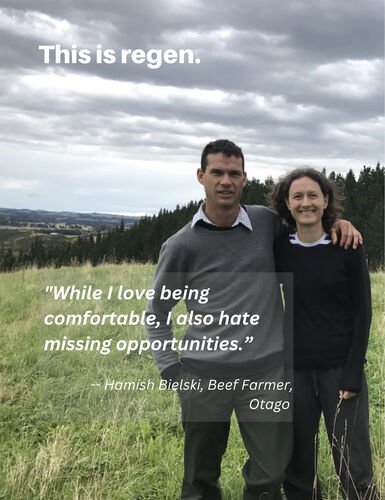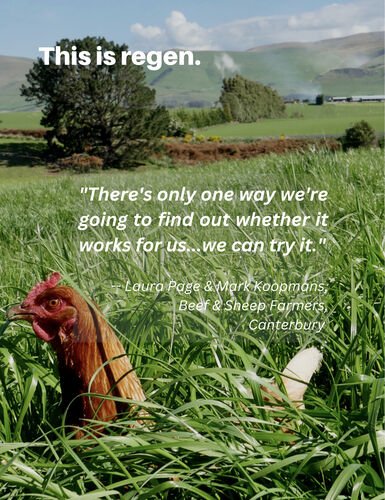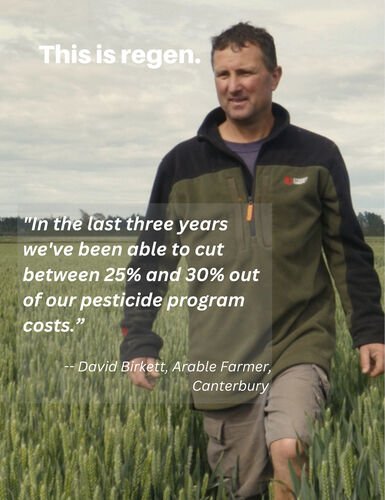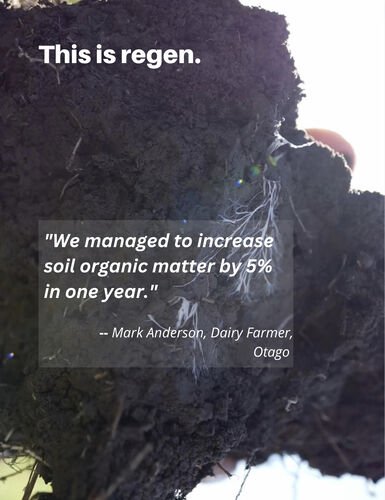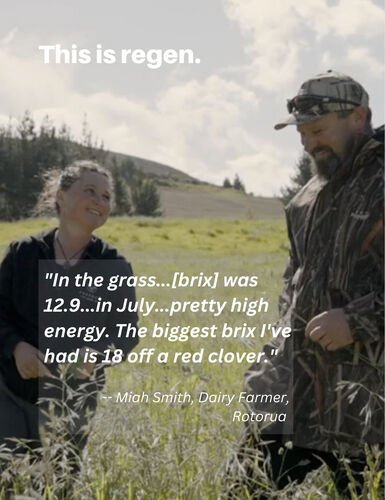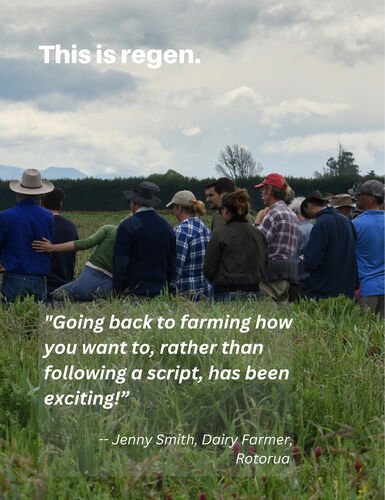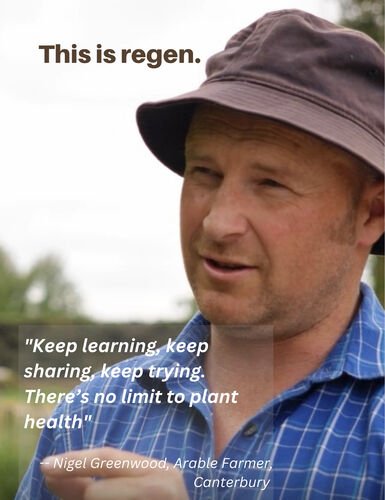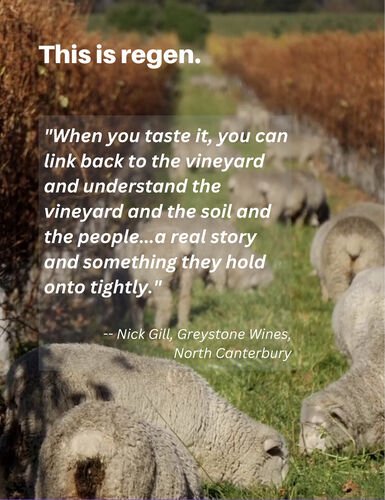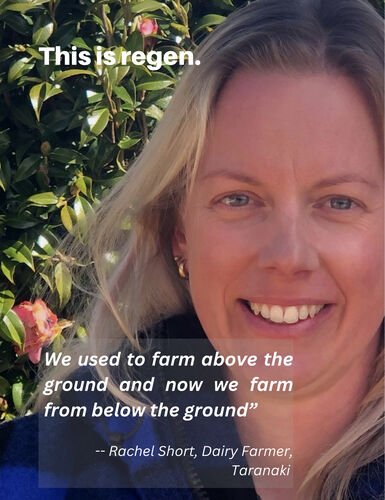What is regenerative agriculture?
The intention of these ‘About regenerative agriculture’ pages is to:
a) provide a foundation for the concept of regenerative agriculture in NZ, through the eyes of kiwi farmers;
b) describe regenerative principles so that you can consider how the principles relate to your farm goals, system and practices (context specific vs prescriptive), and to emphasise the importance of mindset in a regenerative system;
c) indicate how supply chains are adopting regenerative outcome frameworks as certification and value add strategies.
Adapting to the context
Farmers and growers adapt regenerative principles and ideas to suit each farm context, resulting in systems that look very different between farms, regions, sectors and countries. Generally what is consistent across regenerative farms are the broad goals of improving health, resilience and wellbeing across land, animals, people and businesses. Also consistent is the use of regenerative principles that are founded on ecological knowledge and the potential of human mindset.
“In New Zealand, regenerative agriculture integrates both old and new agricultural principles, practices, and knowledge systems under a broad umbrella.
“It is considered to be context-specific, adaptive and goal/outcome oriented, rather than prescriptive.”
Quotes from the Quorum Sense community
(Note: Click on any underlined in blue word(s) in the text below to open a definition of that term).
Disclaimer: The information, opinions and ideas presented in this content is for information purposes only and does not constitute professional advice. Any reliance on the content provided is done at your own risk. (click here to view full disclaimer).
Toolbox index
-
Getting started with a regenerative approach to farming
-
Knowing where to start
-
About regenerative agriculture
-
-
Getting to know soil health
-
Soil health
-
Biological nutrient cycling
-
-
Managing your water cycle
-
Farmer experience
-
Exploring diverse crops / pastures
-
What are diverse crops or pastures (and how do I use them?)
-
Selecting, establishing and managing diverse crops and pastures
-
Farmer experience
-
-
Regenerative grazing management
